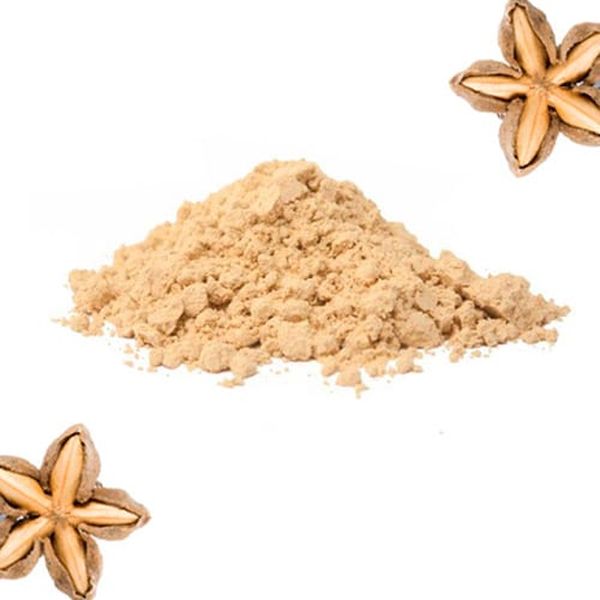Sacha Inchi Is a Superfood Seed Loaded With Protein and omega-3 fatty acids
Sacha inchi (Plukenetia volubilis) is a plant that produces large, edible seeds rich in omega-3 and omega-6 fatty acids, protein, and other substances such as vitamin E and beta-sitosterol. Native to Peru, sacha inchi is also known as sacha peanut, jungle peanut, or Inca peanut.
Sacha inchi oil has a similar fatty acid composition to flaxseed oil. It is a rich source of alpha-linolenic acid, a plant-based omega-3 fatty acid, and is also high in linoleic acid (an omega-6 fatty acid).
A study published in the Journal of Agricultural and Food Chemistry in 2002 found that sacha inchi powder is unusually high in tryptophan, an amino acid essential to the production of serotonin (a nervous system chemical involved in regulating appetite).
The nutrient-dense whole seeds are often consumed roasted. The ground seeds are available in protein powder, cereal, and other food products. The pressed oil from the seeds is used in cooking or is found in dietary supplements.
Sacha inchi have a nut-like flavor when toasted and can be eaten as a snack or added to a variety of dishes. Rich in omega-3s and protein, it is often consumed by people following a vegetarian or vegan diet.
Often marketed as a “superfood”, sacha inchi is said to offer a variety of benefits. Some proponents suggest that consuming sacha inchi can help reduce excess abdominal fat and promote weight loss. In addition, sacha inchi is purported to fight depression, reduce cholesterol levels, prevent heart disease and aid in diabetes management.
It’s well known that diets that are high in fiber promote weight loss. Part of the reason fiber is helpful for weight loss and management is that the nutrient has been shown to work as an appetite suppressant. And when you take in fewer calories, there’s greater potential to go into a calorie deficit, which forces the body to use fat for fuel. As added bonuses, fiber has been linked with improved bowel movements, reduced cholesterol levels, and helps control blood sugar levels.
An individual with a low response to insulin has difficulty managing blood glucose levels. This means that the body isn’t able to metabolize glucose effectively and can lead to health problems like high blood pressure and cholesterol levels. However, according to research from Colombia, the addition of sacha inchi to a breakfast high in saturated fat improved insulin resistance in subjects who tended to experience heightened glycemic index responses after fatty meal consumption.
Alpha linolenic acid (ALA) is an essential fatty acid that cannot be produced by the human body. It’s widely considered to be helpful to protect against cardiovascular and neurological disorders. In a study published in BioMed Research Inernational, researchers from the US, Saudia Arabia, and France found that ALA administration may also offer protection against stroke based on its ability to widen brain arteries for better blood flow. They also saw improvements in neuroplasticity or the brain’s ability to form new neural connections. After rigorous study, scientists from Santiago, Chile, recommend sacha inchi as a rich source of ALA.
